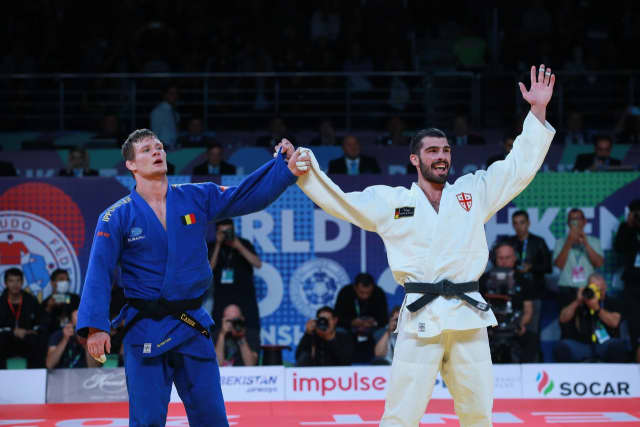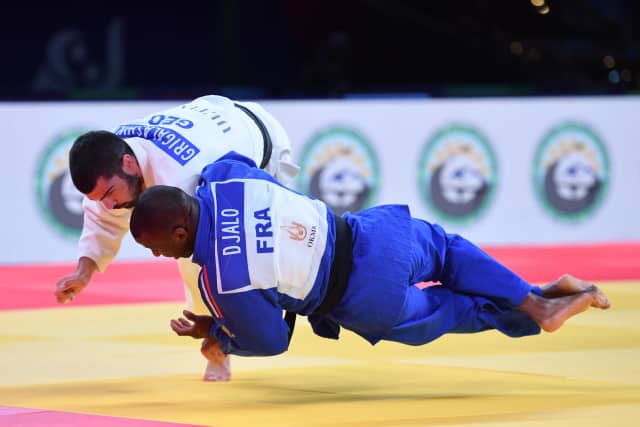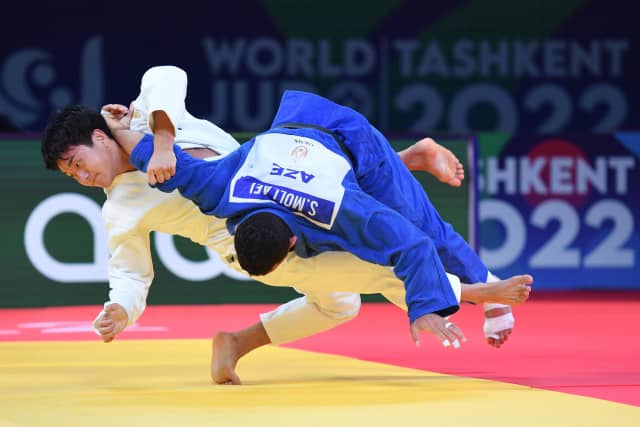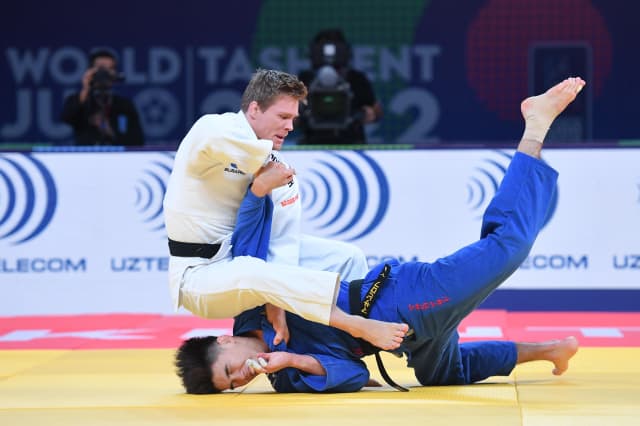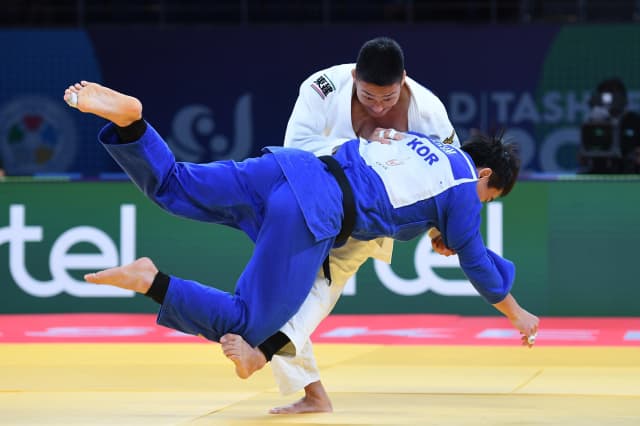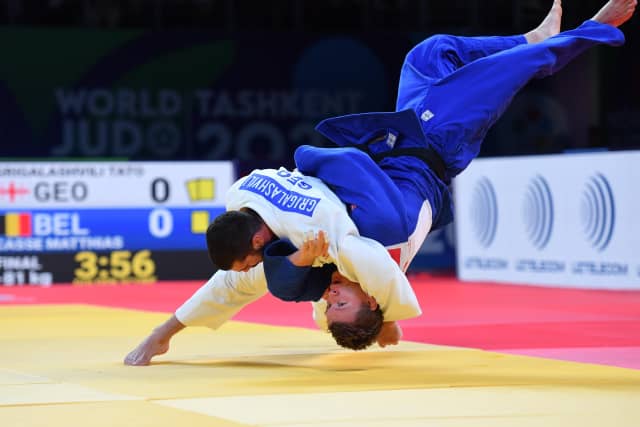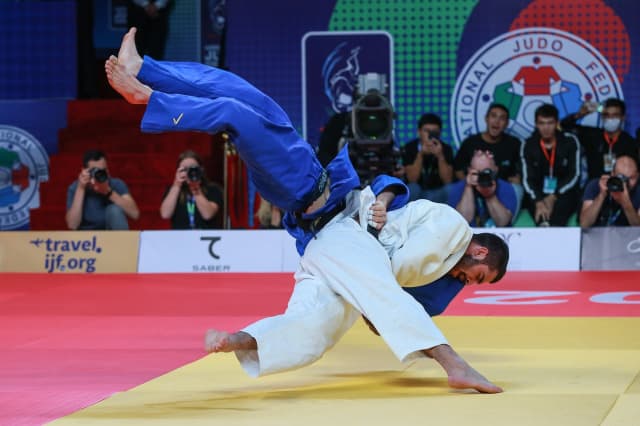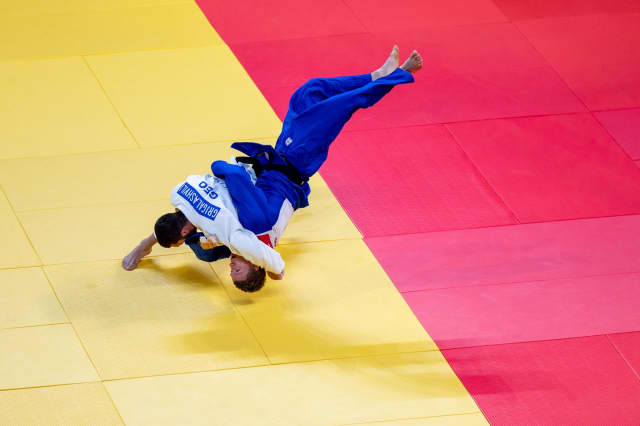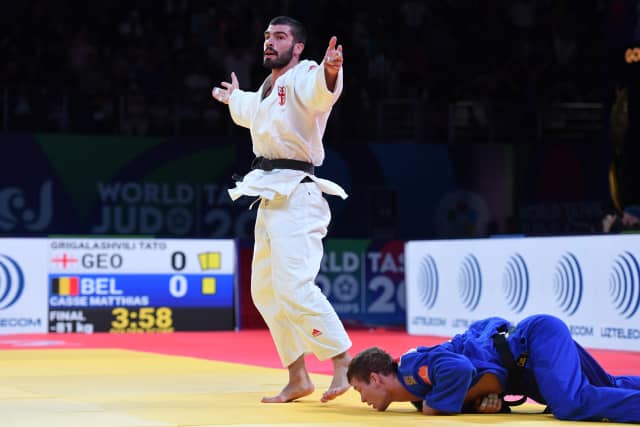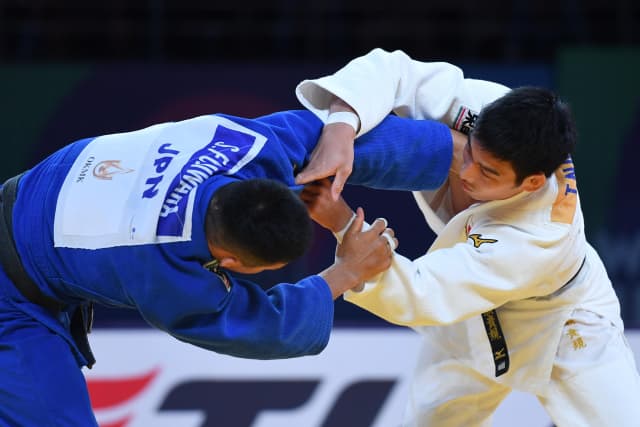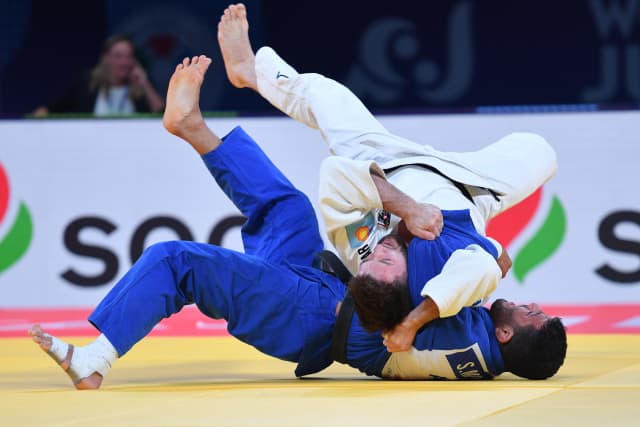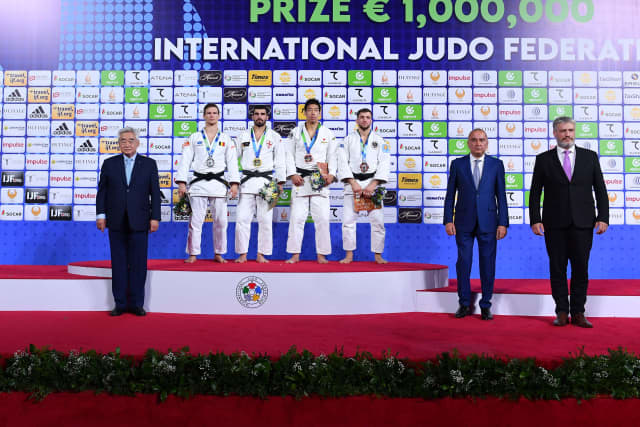We start with the number one in the ranking, Tato Grigalashvili, European champion, runner-up on the world stage, punctual in his appointment with the Olympic champion, Takanori Nagase, in the quarter-finals. The Georgian was the dominator against the French, Djalo, in his first fight, but he had a more complicated task against the Dominican Del Orbe and he did just what was necessary against the Japanese, who won through experience against the Emirati Tatalashvili and the Belgian Chouchi. Grigalashvili showed some of his immense repertoire but Nagase did not, not yet. Grigalashvili was ahead throughout the fight, especially in the first three minutes. The initiative was his and Nagase did nothing. In golden score the Georgian, true to himself, physically collapsed but drew strength from weakness so that the Japanese was penalised a third time.
In group B the Korean rocket Joonhwan Lee drove the Israeli and former world champion, Sagi Muki, crazy, and allowed himself the luxury of eliminating the Brazilian Guilherme Schimidt with an express ippon, no more than twenty seconds into their match. In the quarters Lee intended to eliminate any trace of the old guard and his last hurdle before the semis was named Saeid Mollaei, a former world champion and the silver medallist in Tokyo.
If his friend Muki is in the middle of crossing the desert, Mollaei does his best to adapt to the new times. The Azeri got rid of the Slovakian Barto and the Moroccan Moutii and made an appointment with Lee in what had to be a duel of generations and styles. Mollaei brought out his best judo, the one that made him a world champion and scored waza-ari, withstood the Korean offensive and qualified for the semi-finals, eliminating the biggest sensation of the year. Grigalashvili and Mollaei had unfinished business from Tokyo, where the Azeri defeated the Georgian. In the Tashkent semi-final Saeid made his only mistake of the day but he paid dearly for it, because he did not attack and was eliminated through passivity. Grigalashvili, who did nothing but the bare minimum, qualified for his second consecutive world final, in which he also had scores to settle.
In group C the current world champion, Matthias Casse, did what was expected of him. The Belgian eliminated the British Moorhead and the Kyrgyz Masabirov. It was normal and Casse dedicated himself to what he does best, patiently building a spider’s web and waiting for his opponents to make mistakes. As he is very solid and very strong, you have to go looking for him but he is also a specialist in making profit from any situation. To get into the semi-finals he had to defeat the Austrian Borchashvili, a bronze medallist in Tokyo, just like Casse. The combat was so tactical, so cautious, that it could be used as a sedative for those who suffer from sleep disorders. Going into that game, Casse is an artist, much more intelligent than average and he forced Borcharshvili to rack up penalties all the way to a third.
Group D was that of the local hope, with Sharofiddin Boltaboev as the maximum exponent. The Uzbek did not disappoint and tried to reach the quarter-finals by doing two very interesting things for himself and for the others. After Nagase's elimination, Boltaboev had the chance to remove the second Japanese in the category, Sotaro Fujiwara, from the competition and incidentally take advantage of the failure of the Turkish Albayrak, who stumbled resoundingly against the Hungarian Attila Ungvari. However, Fujiwara won and prepared to face Casse.
The Belgian does not like to fight against the Japanese, he hasn't quite found their weak point and Fujiwara was Casse's toughest opponent of the day. In fact, the Japanese scored a great waza-ari, forcing Casse to attack, which is what he doesn't like, he likes to fight back but it is accepted that the world champion does not stop training or improving. Ten seconds from the end he grabbed Fujiwara and drew his silhouette on the tatami, showing that he is no longer afraid of the Japanese and that he can attack whenever he wants. Incidentally, a new meeting with Grigalashvili was offered, just like a year ago.
One thing we can say about Grigalashvili before starting the final, the Georgian has learned to control his impulses and no longer wastes energy before fighting. That shows intelligence and excellent coaching work. For his part, Matthias is no longer always the patient man who waits, now he also knows when and how to attack. As a result, we had a high-carat final, very tactical, with outstanding technique and with two men using their full arsenal.
Grigalashvili's only weak point is physical because he suffers after a few minutes, but he makes up for it with a newly acquired cold blood. In golden score the Georgian attacked, Casse responded, it was a final that marks an era, even better than the previous year. In addition to being very robust, very powerful, Matthias has also improved his judo and he is a world champion who honours his title.
Grigalashvili's offence did not change his strategy; along the way he did get a second shido against none for the Belgian. It was a fight to record and watch many times, to show it in the dojos, to enjoy judo at its best. There had to be a winner and a loser and everything was decided in the fourth minute of extra time when Grigalashvili's forces seemed to abandon him. Later we understood that he was bluffing and had an ace up his sleeve in the form of a stratospheric waza-ari, an ippon in the making of it wasn’t for the agility of Casse. The teenager has become an adult, but to win a world title in the best final in recent years, you need a monumental opponent and Casse was it. The good thing for judo is that they are called to see each other many more times in the future and if they are able to produce this level of judo, we don't even want to think about what they can do next. It will be better to enjoy it when the time comes.
Nagase and Fujiwara secured a bronze for Japan in a very typical, tactical match between two Japanese. Nagase won by hansoku-make but they did not impress the public.
Much more entertaining was the fight between Borchashvili and Mollaei for the second bronze. First they were sniping at each other in a beautiful kumi-kata duel. Later the Austrian scored a dazzling waza-ari that the Azeri tried to emulate seconds later. Third, the finish, with an initial attack by Borchashvili blocked by Mollaei but the Austrian pushed back and dropped Mollaei for a bronze flavoured ippon to conclude the day for a prodigious category. It was full of talent and that is a huge inspiration for followers because of the amount of good judo coming from all over the world. Winning at -81kg has a special value, judoka know it and so do we.

